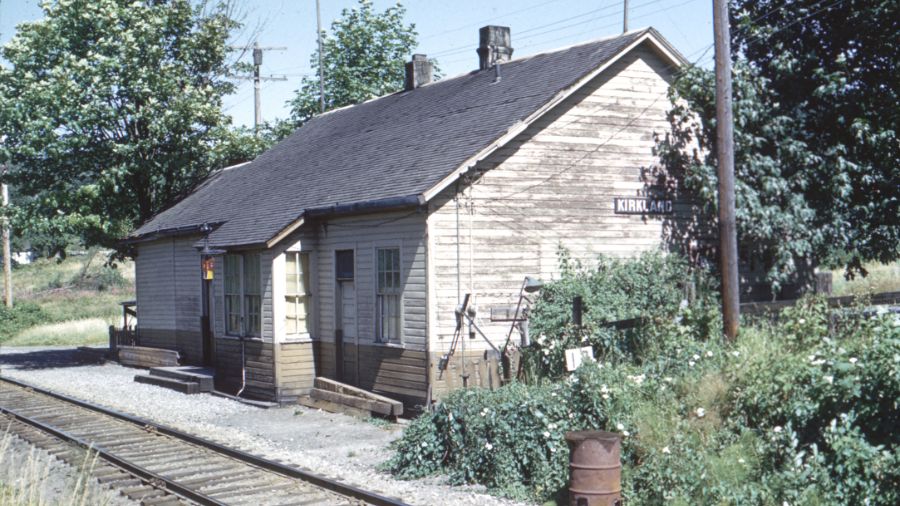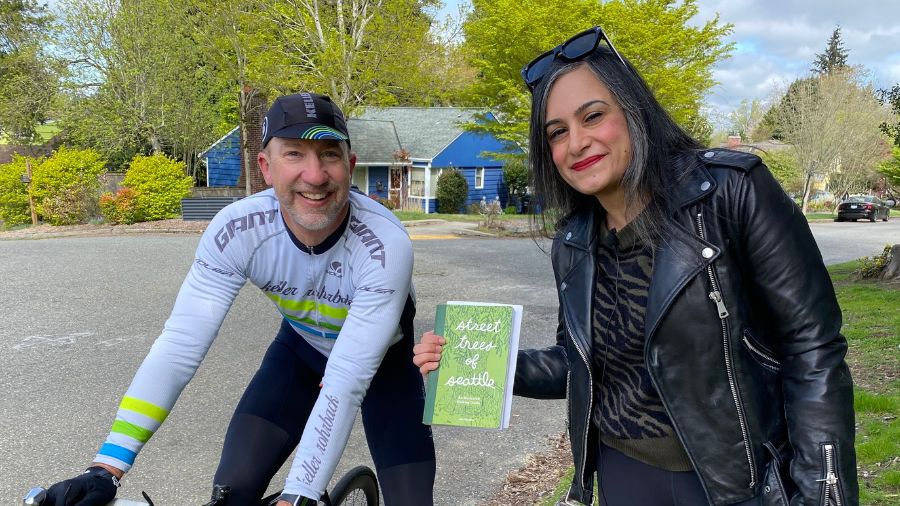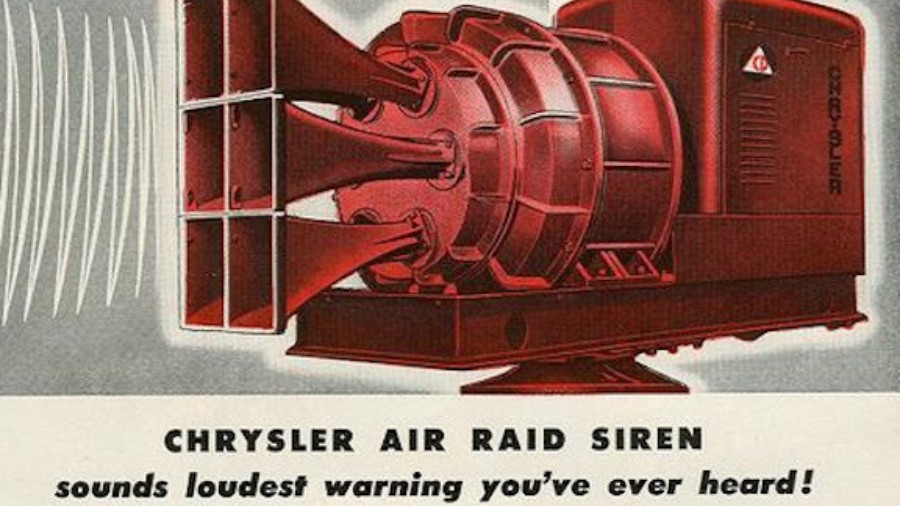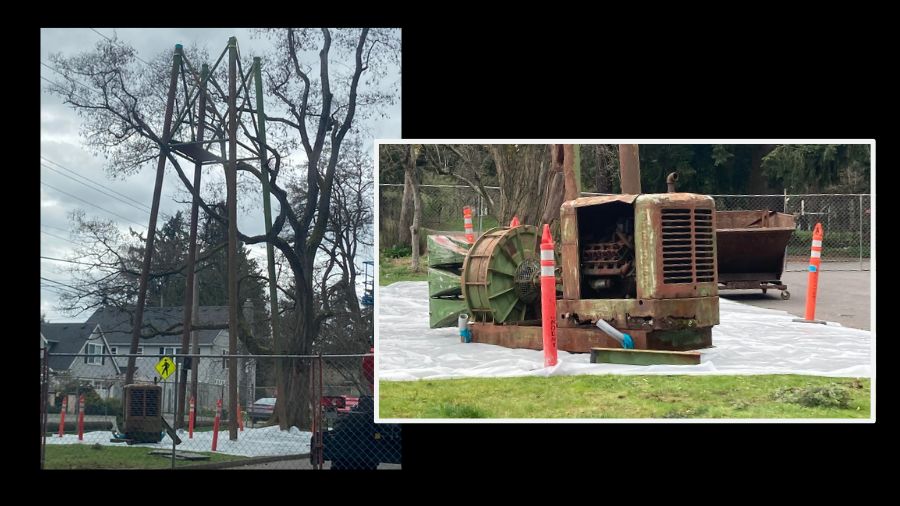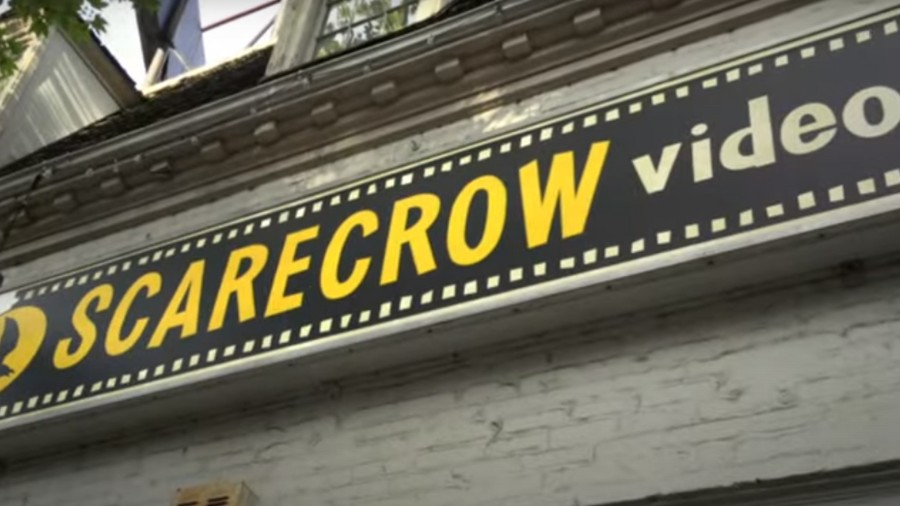Local TV legend “Brakeman Bill” McLain passes away at age 96
Apr 10, 2024, 12:20 PM | Updated: 1:17 pm
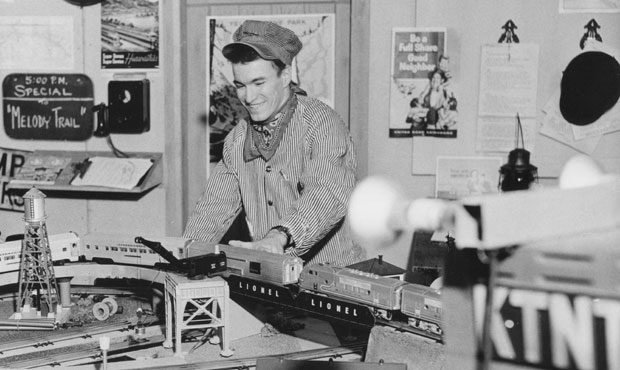
Brakeman Bill was played by native Tacoman Bill McLain on channel 11 from 1955 to 1975; his sidekick was a sock puppet named Crazy Donkey, operated and voiced by Warren Reed. (Courtesy Tacoma Public Library)
(Courtesy Tacoma Public Library)
Brakeman Bill McLain, longtime beloved kids’ TV show host, has passed away, according to a message from his family posted on social media. In 2021, we caught up with Bill for this profile piece, when he was in his 90s, and still chuggin’ along. RIP.
Original story
For some kids – not to mention any names – summer vacation used to mean sitting around and watching a lot of TV. And one of the things that kids around here used to watch – again, not to mention any names – was The Brakeman Bill Show on Channel 11.
With unfounded rumors swirling on social media earlier this week, KIRO Radio caught up with the Brakeman, who’s still chuggin’ along well into his nineties.
Bill McLain lives in University Place near Tacoma. He’ll be turning 94 in a few weeks and he’s still married to Jean, his high school sweetheart from their time together at Tacoma’s Lincoln High School in the early 1940s.
McLain is better known as Brakeman Bill, host of The Brakeman Bill Show on Channel 11 – which was originally known as KTNT (for The News Tribune, the newspaper also owned by the Baker family) and became KSTW — for 20 years, from 1955 to 1975. On the daily live afternoon program, he showed cartoons, drew funny sketches, and engaged in witty repartee with a sock puppet named Crazy Donkey. This hosiery Equus asinus supplied the show with a kind of kinetic kookiness, courtesy of the man whose hand was in the sock and who did the ad lib voicing: the energetic and imaginative Warren Reid.
Brakeman Bill wore socks, too, of course, but he was better known for his train-inspired wardrobe of overalls and striped railroad hat. Wearing this uniform on the Tacoma set of the show, Bill operated a model train called the Cartoon Special.
Nearly 50 years after the Cartoon Special tooted its whistle for the last time and the show left the air, Bill McLain still has trainloads of devoted fans. Even in his street clothes, he’d often get recognized, beginning back in the 1950s.
“I still do,” McLain told KIRO Radio. “Every once in a while, I’ll get a double take or a triple take. [They’ll say], ‘He looks familiar.’ Once in a great while, someone will say, ‘Aren’t you Brakeman Bill?’ And I say, ‘Yes.’”
Appearing live on TV every afternoon, especially from the 1950s to the 1970s, created a special relationship between Brakeman Bill and many of his young viewers.
“My audience, a great deal of them, were latchkey kids,” McLain said. “They came home from school, and there was nobody there. So, they went and turned the TV on and there I was. I had the afternoon show, JP [Patches] had the morning show.”
“I was their surrogate parent,” he added.
This “surrogate parent” effect was something that the late Chris Wedes – who played JP Patches on KIRO TV from 1958 to 1981 – also experienced, and often got choked up about when discussing the effect with pesky local historians. It’s not an overstatement or an exaggeration to say that in the years before syndicated cartoons and other national programming displaced guys like Brakeman Bill and JP Patches, there was something special for many kids watching local hosts on local TV and then being able to meet those hosts in real life, too.
Whatever the reason, the effect was real and it was strong, and it had staying power. It’s translated into a lot of love between local hosts and local fans that’s still manifesting for both parties decades and decades after the shows went off the air.
“I was at the barber shop and one gal came up to me and started crying,” McLain said. “And she said, ‘You don’t realize how much you meant to me and other kids like me. We were so alone and all we had was you.’”
“When I went to pay for it, … she’d bought my haircut,” he said, clearly moved by the gesture.
“And that was not unusual,” McLain continued. “A lot of times, people give me big hugs and all. One of my fan clubs was a bunch of loggers up in Morton. Figure that one out,” McLain said, chuckling.
“Frat houses at the universities had Brakeman Bill fan clubs,” he said. “Different era.”
Much of Bill McLain’s life and career has unfolded in “different eras” – from growing up with modest means on McKinley Hill in Tacoma during the Great Depression to serving in the Navy in the Pacific in the final months of World War II, and then working in morning radio and sportscasting in Ellensburg and Yakima in the late 1940s and early 1950s, to coming home to Tacoma in his late twenties to work for KTNT – as a camera operator for the TV station and sports director for the radio station.
Camera operator McLain became Brakeman Bill only after the program’s original host – a character known as Engineer Walt, played by future media historian and Puget Sounds author Dave Richardson – came down with a debilitating case of polio.
The Tacoma show, with its railroad theme and model train set, was based on a similar program in Los Angeles that had quickly become a moneymaker. With the first wave of baby boomers in full bloom of their Eisenhower-era childhoods, there was money to be had selling live ads for stuff like Bosco chocolate syrup and Tree Top apple juice.
And then there was the wardrobe. Unlike JP Patches or even Gertrude (played by the late Bob Newman), Brakeman Bill didn’t have to put on clown makeup. His identity was that of working railroad guy, and McLain still has at least one pair of overalls and one striped hat, though it’s been a while since he’s worn them out anywhere.
“I couldn’t remember, even,” McLain said. “It’s been so many years. I think the last time was when they dedicated a locomotive out in Fife — the last hurrah.”
The last hurrah for the TV show was even further in the past – way back on April 1, 1975 – or more than 46 years ago. And Brakeman Bill blames the show’s demise, at least partially, on, of all people, the beloved, beatific late public TV kids’ show host Fred Rogers.
“Well, I hate to say this, but I thought Mister Rogers was a wimp,” McLain said. “He just came across so soft. Not to knock him, but he was one of the guys that took me off the air. The PBS people decided that live entertainers like me, live hosts of kids’ shows who were selling bicycles on the air to kids that couldn’t afford a bike, and selling breakfast cereals that rot their teeth out, and toy commercials that poor kids couldn’t afford” had undue influence over those kids.
The belief was that guys like Brakeman Bill and JP Patches had too much influence over young minds. That is, when that “surrogate parent” promoted some toy or food product on his show, the kids in the audience took it as a command from their TV friend to buy, or to tell mom or dad to buy it for them.
That was “a bunch of hooey,” says Bill McLain. But, the private trade group for radio and TV, the National Association of Broadcasters (NAB), came under pressure from the Federal Communications Commission to do something about it on their own, or face new federal regulations.
“So the NAB passed a rule [Article X] [for] the broadcasters, and I could no longer do live commercials,” McLain said. “That was the end of my show.”
When those commercials went away because of changes to the NAB Code in 1973 – a change that people like Fred Rogers and others, such as the group Action for Children’s Television, had called for – so did the revenue. That train, and that cash – and, this Brakeman – left the station.
After the show went off the air, Bill McLain transitioned to management, spending the next two decades or so as head of promotions for KSTW. But he continued making personal appearances as Brakeman Bill, including school fundraisers where he’d split ticket revenue with the particular PTSA, and several editions of the “Northwest TV Holiday Reunion” at MOHAI in the early 2000s.
Along with the PTSA fundraisers – and a fairly serious second career as an oil painter – Bill and wife Jean had at least one more surprising side hustle.
“A lot of people don’t know what I did for my vacations,” McLain said. “I taught dancing on cruise ships. I had an agent in Miami, Florida, and I liked to go for long [cruises], like 45 days, from San Francisco to Australia.”
His best step? The cha-cha, Bill McLain says (and his wife agrees).
Another more brilliant step was McLain’s savvy move to copyright the character of Brakeman Bill for himself – since the TV station owners had neglected to – which gave him more control over the TV program, and things like revenue from public appearances and vacation scheduling, than his contemporaries such as JP Patches and Gertrude had.
“Because I owned the copyright for the show,” McLain said, “I could turn it over to Crazy Donkey and Warren would do the show while I was gone.”
That is, Crazy Donkey – a puppet – would serve as fill-in host without Brakeman Bill or any other human help. Warren Reid, the voice and arm of Crazy Donkey, passed away in 1986.

There are at least two known authentic Crazy Donkey puppets. On the left is one that was donated to MOHAI by Warren Reid’s family; puppet shown in center and right belongs to private collector Tim Brown, and was acquired from the Reid family. (Photos courtesy MOHAI and Tim Brown)
At 93, Brakeman Bill still has a lot of control over many aspects of his life. But his wife Jean McLain did let KIRO Radio in on a little secret.
“You’re lucky that you called him [this afternoon],” Jean said, chuckling. “Because I had him out in the yard working and he hates yard work. All this time [he was talking with you], I had to do the yard work, and he got away with not doing it.”
Back in the 1990s, before he freed up his schedule for avoiding yard work, and when he was still promotions director at Channel 11, McLain was involved in the most recent attempt to produce a local kids’ program.
The show was called Ranger Charlie and Rosco, and it featured a raccoon puppet created and performed by Winslow Barger. The program lasted a few years and went through a few iterations. The final co-host, when the program had morphed into Rosco and Ronnie, was played by M.J. McDermott, who nowadays is a meteorologist for Q13.
Even if there was someone qualified to don the sock puppet, it’s not likely that local kids’ TV shows will ever be a “thing” again in the Puget Sound area or anywhere; the economics don’t really pencil out, and the audience has moved on to other more portable platforms. Latchkey kids everywhere are, so far in this century, tuning into apps that readily serve up millions of hours of on-demand content.
However, should those latchkey kids one day want to show their gratitude for the entertainment and for being kept company, they might have a hard time finding anyone connected to that on-demand content whose haircut they can pay for.
You can hear Feliks every Wednesday and Friday morning on Seattle’s Morning News, read more from him here, and subscribe to The Resident Historian Podcast here. If you have a story idea, please email Feliks here.


